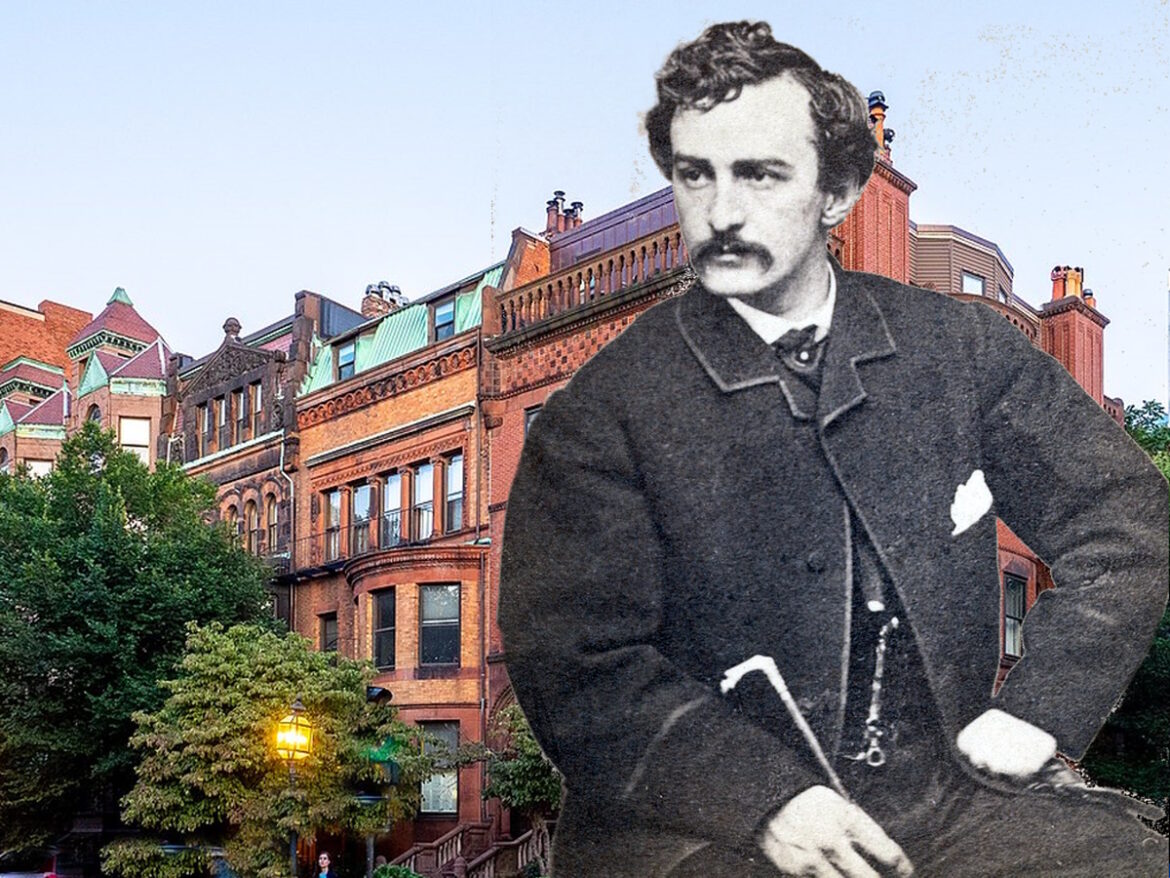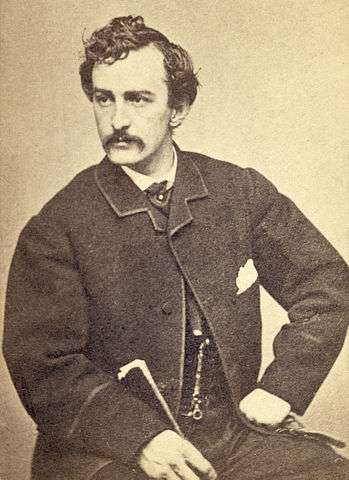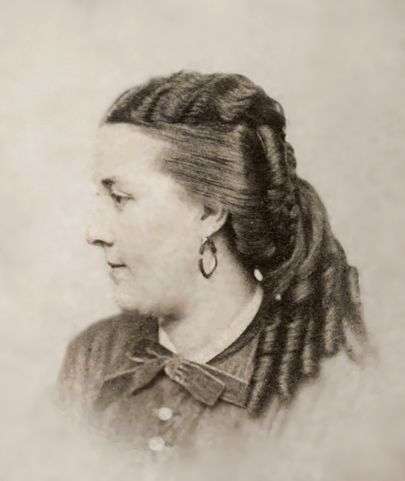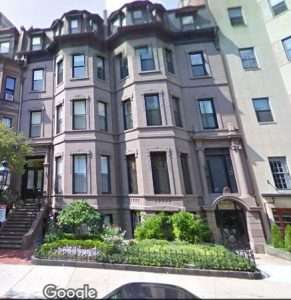John Wilkes Booth sympathized with the South during the Civil War, but he planned to move to Boston, a Northern city full of Northern sympathizers.
Had he not assassinated President Lincoln, he might have settled down in Back Bay with his New Hampshire wife, hobnobbing with people like Julia Ward Howe, an ardent abolitionist.
Ironically, a man named Boston shot him to death.
John Wilkes Booth
He was born May 10, 1838, in Bel Air, Md., to British actor Junius Brutus Booth and his mistress, Mary Ann Holmes. They were also the parents of his older brother, Edwin.
In 1851, Junius Booth’s wife gave him a divorce and he married Mary Ann Holmes on John Wilkes Booth’s 13th birthday. But the stain of illegitimacy propelled Edwin and John Wilkes into ambitious acting careers as well as rivalry with each other. John Wilkes Booth supported the Confederate cause, while Edwin supported the Union.
A third brother, Junius Brutus Booth Jr., also turned to acting – and managing a theater in Boston. The three brothers appeared on stage together only once, in Julius Caesar. Edwin Booth played the tyrant slayer Brutus, John Wilkes’ favorite role. Proceeds from the performance went to pay for a statue of William Shakespeare that still stands in Central Park.
Scene-Stealing
At 17, John Wilkes Booth began his acting career in Baltimore, missing his lines during his debut. But he quickly improved and won acclaim for his scene-stealing performances and his good looks.
He also showed an interest in politics, and went to a rally as a delegate for a Know-Nothing candidate in 1854. And he attended the hanging of abolitionist leader John Brown in 1859.
During the Civil War, John Wilkes Booth appeared on stage mostly in Union and Border states. He made his debut in Boston on May 12, 1862 as Richard III. The Boston Transcript called him the most promising young actor on the American stage.
One of his costars later said, “When he fought, it was no stage fight….he told me that he generally slept smothered in steak or oysters to cure his own bruises after Richard III.”
Infatuated women began sending him fan mail. He, in turn, sent an anonymous Valentine in 1862 to Lucy Lambert Hale, the daughter of U.S. Sen. John Parker Hale. Hale represented New Hampshire and barnstormed the country in favor of abolishing slavery. Those views appalled John Wilkes Booth, but that didn’t stop him from courting Lucy Lambert Hale. By the time he killed Lincoln, she had agreed to marry him.
Remarkable Beauty
Booth’s brother and sister-in-law, Mary Devlin Booth, lived in Dorchester (now a Boston neighborhood). In February 1863, Mary got a chill while Edwin Booth performed in New York. She grew steadily worse and asked John Wilkes Booth to take a letter to his brother in New York telling him she had a feverish cold.
On Feb. 24, 1863, the Booth brothers and their mother buried Mary in Mount Auburn Cemetery. Julia Ward Howe, who wrote Battle Hymn of the Republic, attended. She wrote afterward that that John Wilkes Booth was a young man of remarkable beauty.
He earned good money, which he invested in a Cleveland theater and in Pennsylvania oil wells. On April 9, 1863, he wrote to his friend, Joe Simonds, asking him for a catalog of Back Bay lands. The Back Bay tidal flats had just been filled in, and John Wilkes Booth bought land at what is now 115 Commonwealth Ave. The purchase price: $8,192. He planned to build a house on the land.
Why Boston, of all places? He liked the city. He had many enthusiastic followers in Boston, and he enjoyed the city’s cultural offerings.
In the fall of 1863, John Wilkes Booth played in Boston, Providence, R.I., and Hartford, Conn. In September he was staying at an actors’ boardinghouse in Boston. He spent an evening with a young man named Harrison Huguley, a 20-year-old member of Surgeon Gen. Joseph K. Barnes’ staff. He made such intemperate remarks about the government that Huguley felt he ought not listen to such treasonable words. Huguley excused himself and, when he returned to Washington, told Barnes.
1865
Abraham Lincoln’s re-election as president infuriated John Wilkes Booth. He attended Lincoln’s inauguration with a pass that Lucy Lambert Hale gave him. He later commented he’d had an excellent chance to kill him.
Booth grew so vehement in his denunciations of Lincoln that his brother Edwin banished him from his home and forbade anyone to say his brother’s name in his presence.
After shooting Lincoln on April 14, 1865 at Ford’s Theater. He fled to Virginia, where a Union soldier named Boston Corbett shot him to death. Corbett had changed his name from Thomas to Boston because he’d had a religious conversion in the city.
After Booth died, Lucy Lambert Hale’s photo was found on his body.
No one ever questioned Lucy Lambert Hale about Lincoln’s assassination, and her father quickly whisked her away to Europe.
With thanks to John Wilkes Booth: Day by Day By Arthur F. Loux. This story was updated in 2024.
Images: Commonwealth Ave. by By Ajay Suresh from New York, NY, USA – Boston – Back Bay's Commonwealth Avenue, CC BY 2.0, https://commons.wikimedia.org/w/index.php?curid=82156223.




2 comments
[…] John Wilkes Booth gets engaged to Lucy Hale, didn’t fake stage fights. […]
[…] The anonymous letter captivated Lucy Lambert Hale. It intrigued her even more when she learned it came from the handsome actor and heartthrob John Wilkes Booth. […]
Comments are closed.